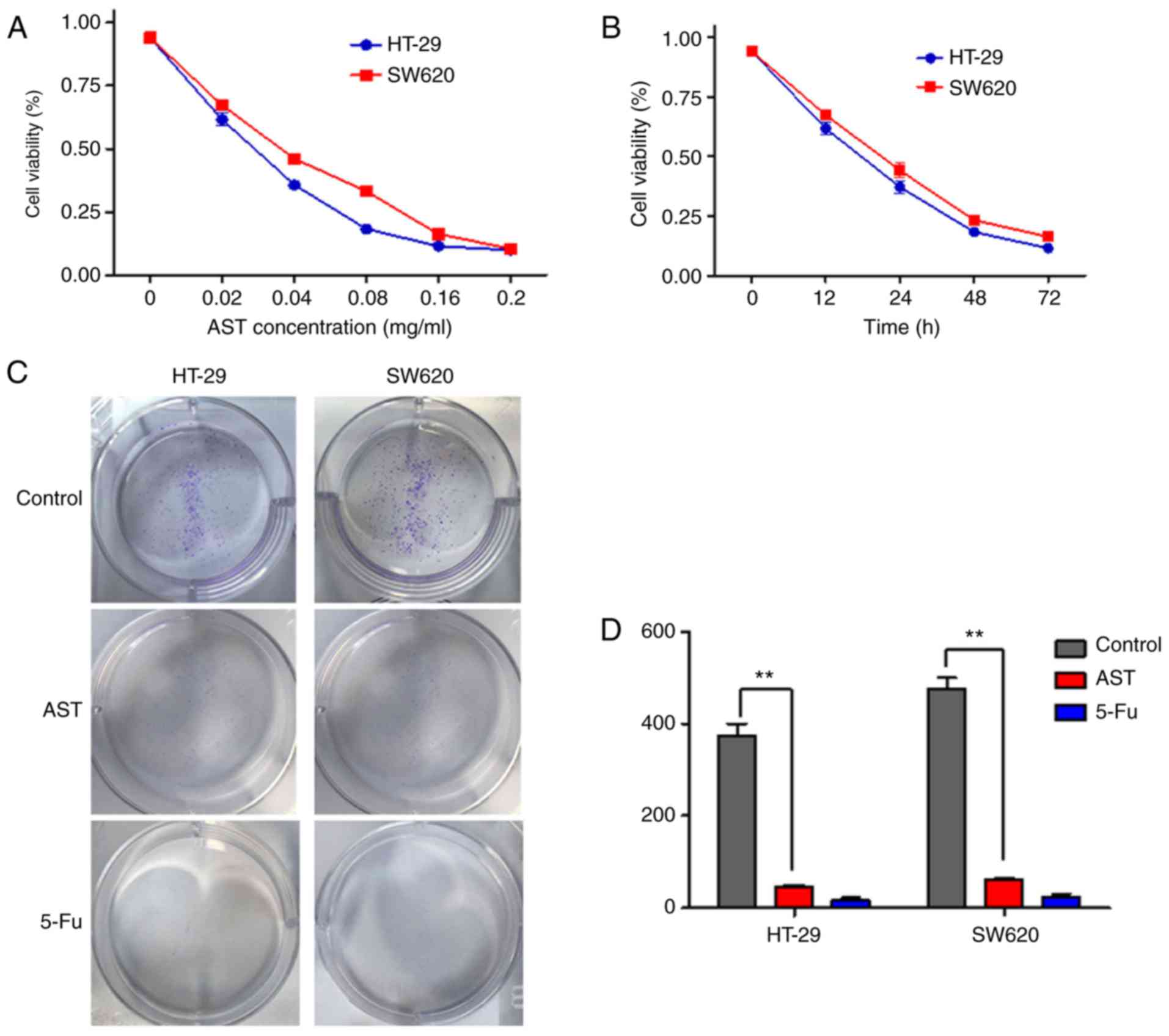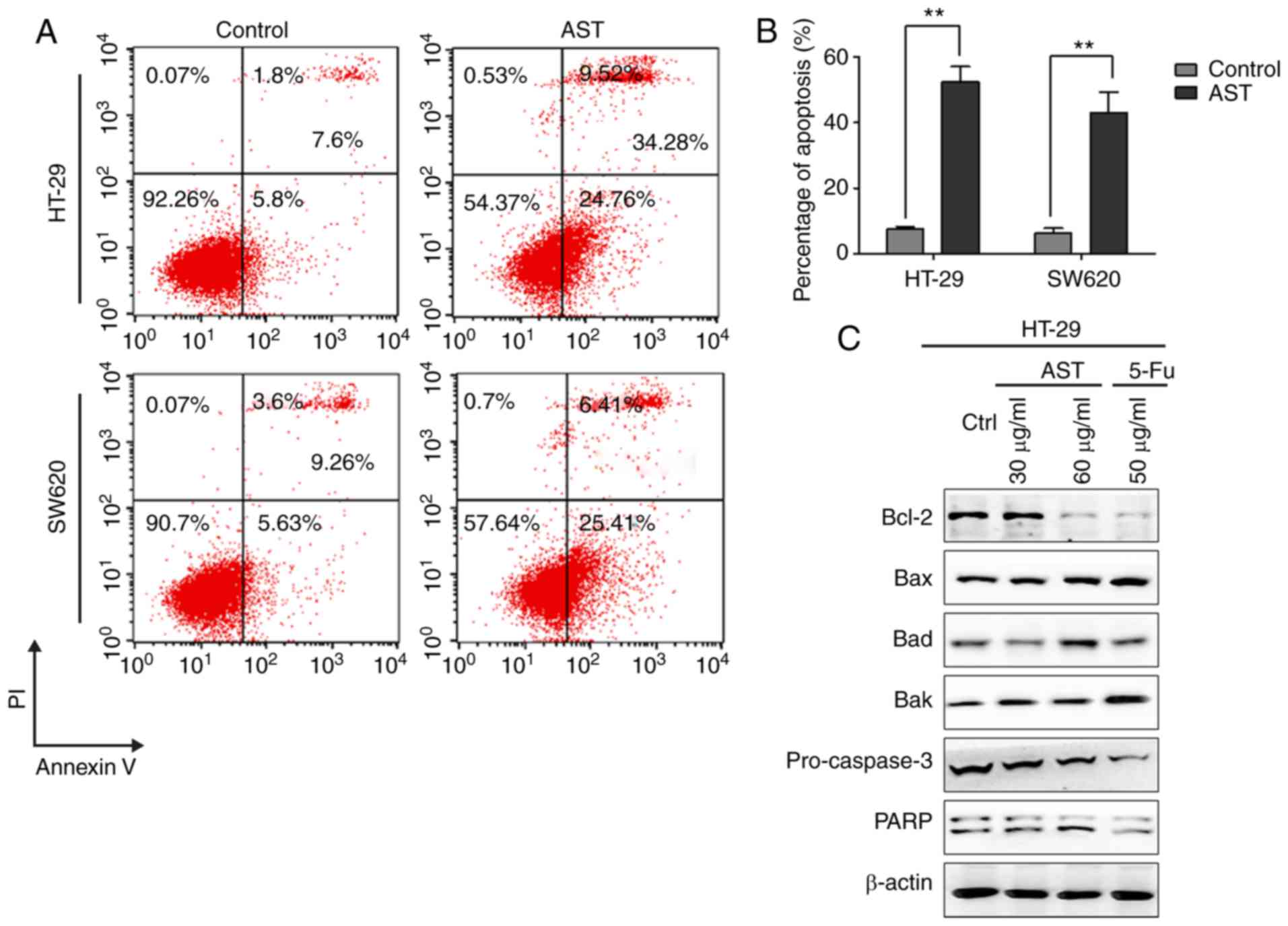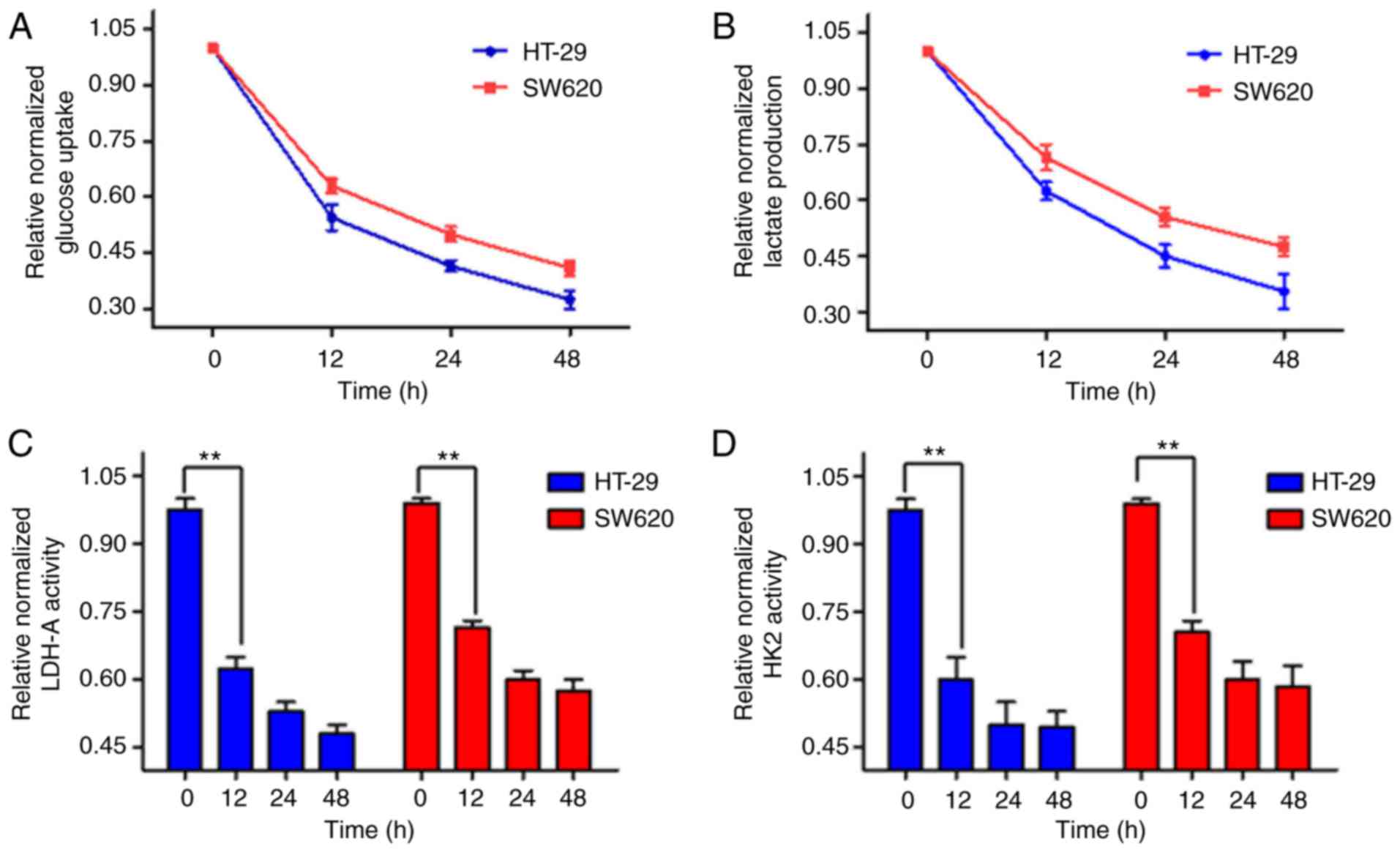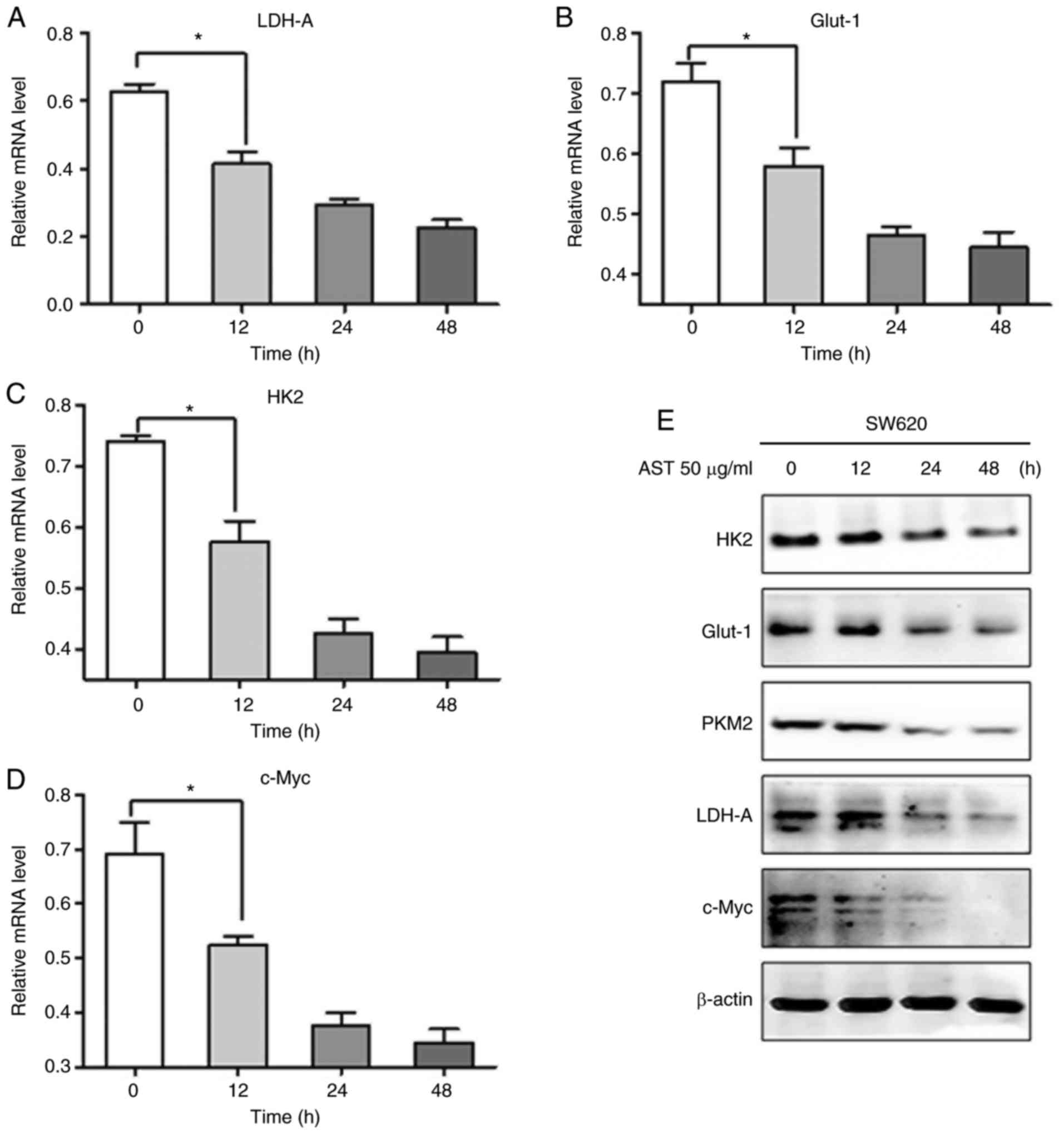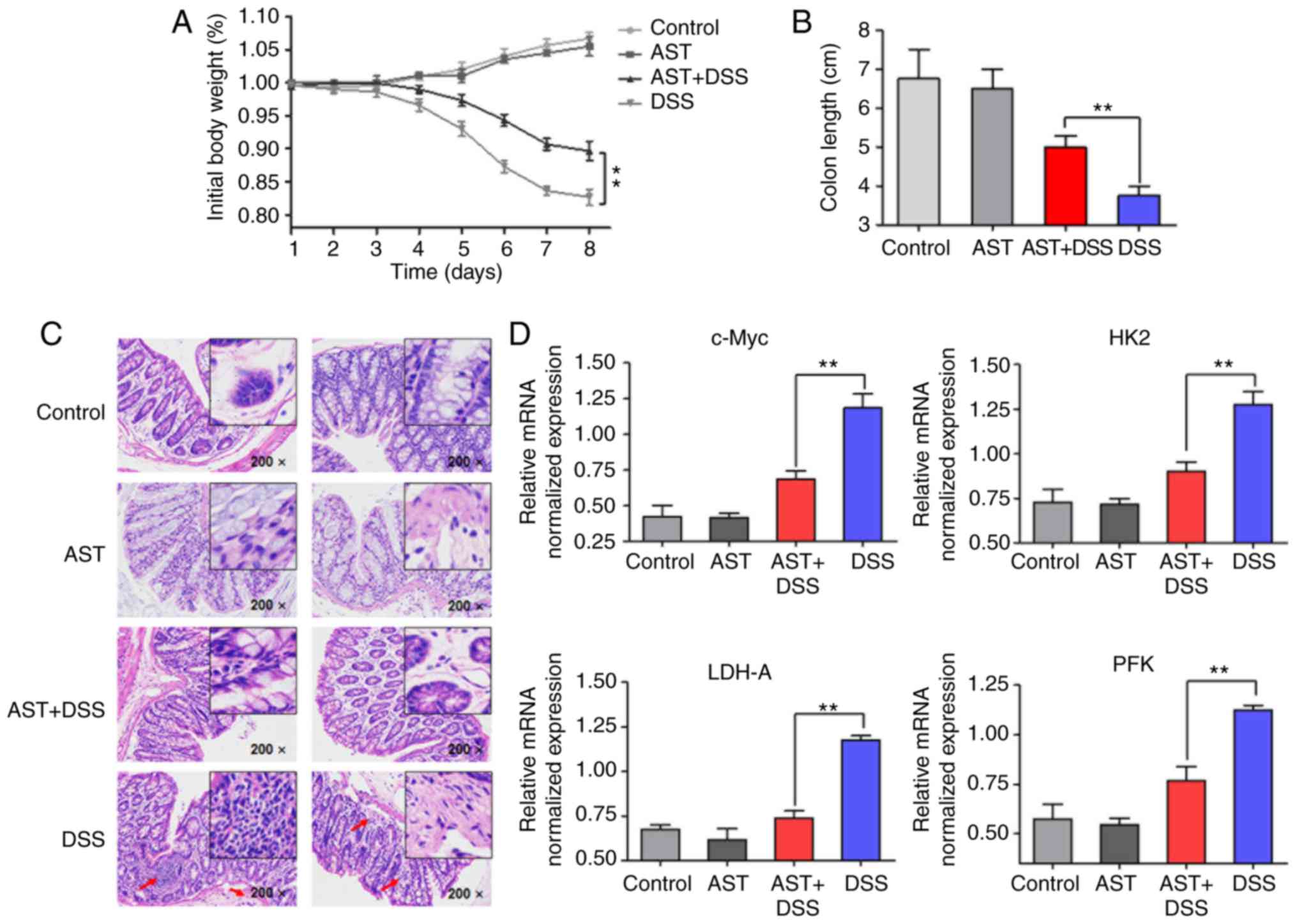|
1
|
Tenesa A and Dunlop MG: New insights into
the aetiology of colorectal cancer from genome-wide association
studies. Nat Rev Genet. 10:353–358. 2009. View Article : Google Scholar : PubMed/NCBI
|
|
2
|
Siegel RL, Miller KD, Fedewa SA, Ahnen DJ,
Meester RGS, Barzi A and Jemal A: Colorectal cancer statistics,
2017. CA Cancer J Clin. 67:177–193. 2017. View Article : Google Scholar
|
|
3
|
Potack J and Itzkowitz SH: Colorectal
cancer in inflammatory bowel disease. Gut Liver. 2:61–73. 2008.
View Article : Google Scholar : PubMed/NCBI
|
|
4
|
Ullman TA and Itzkowitz SH: Intestinal
inflammation and cancer. Gastroenterology. 140:1807–1816. 2011.
View Article : Google Scholar
|
|
5
|
Wei H, Sun R, Xiao W, Feng J, Zhen C, Xu X
and Tian Z: Traditional Chinese medicine Astragalus reverses
predominance of Th2 cytokines and their up-stream transcript
factors in lung cancer patients. Oncol Rep. 10:1507–1512. 2003.
|
|
6
|
McCulloch M, See C, Shu XJ, Broffman M,
Kramer A, Fan WY, Gao J, Lieb W, Shieh K and Colford JM Jr:
Astragalus-based Chinese herbs and platinum-based chemotherapy for
advanced non-small-cell lung cancer: Meta-analysis of randomized
trials. J Clin Oncol. 24:419–430. 2006. View Article : Google Scholar
|
|
7
|
Wu CY, Ke Y, Zeng YF, Zhang YW and Yu HJ:
Anticancer activity of Astragalus polysaccharide in human non-small
cell lung cancer cells. Cancer Cell Int. 17:1152017. View Article : Google Scholar
|
|
8
|
Ye MN and Chen HF: Effects of Astragalus
injection on proliferation of basal-like breast cancer cell line
MDA-MB-468. Zhong Xi Yi Jie He Xue Bao. 6:399–404. 2008.In Chinese.
View Article : Google Scholar
|
|
9
|
Deng Y and Chen HF: Effects of Astragalus
injection and its ingredients on proliferation and Akt
phosphorylation of breast cancer cell lines. Zhong Xi Yi Jie He Xue
Bao. 7:1174–1180. 2009.In Chinese. View Article : Google Scholar
|
|
10
|
Wang T, Xuan X, Li M, Gao P, Zheng Y, Zang
W and Zhao G: Astragalus saponins affect proliferation, invasion
and apoptosis of gastric cancer BGC-823 cells. Diagn Pathol.
8:1792013. View Article : Google Scholar :
|
|
11
|
Cassileth BR, Rizvi N, Deng G, Yeung KS,
Vickers A, Guillen S, Woo D, Coleton M and Kris MG: Safety and
pharmacokinetic trial of docetaxel plus an Astragalus-based herbal
formula for non-small cell lung cancer patients. Cancer Chemother
Pharmacol. 65:67–71. 2009. View Article : Google Scholar
|
|
12
|
Dugoua JJ, Wu P, Seely D, Eyawo O and
Mills E: Astragalus-containing Chinese herbal combinations for
advanced non-small-cell lung cancer: A meta-analysis of 65 clinical
trials enrolling 4751 patients. Lung Cancer (Auckl). 1:85–100.
2010.
|
|
13
|
Ma XQ, Shi Q, Duan JA, Dong TT and Tsim
KW: Chemical analysis of Radix Astragali (Huangqi) in China: A
comparison with its adulterants and seasonal variations. J Agric
Food Chem. 50:4861–4866. 2002. View Article : Google Scholar
|
|
14
|
Schlaepfer IR, Hitz CA, Gijón MA, Bergman
BC, Eckel RH and Jacobsen BM: Progestin modulates the lipid profile
and sensitivity of breast cancer cells to docetaxel. Mol Cell
Endocrinol. 363:111–121. 2012. View Article : Google Scholar
|
|
15
|
Zhan P, Wang Y, Zhao S, Liu C, Wang Y, Wen
M, Mao JH, Wei G and Zhang P: FBXW7 negatively regulates ENO1
expression and function in colorectal cancer. Lab Invest.
95:995–1004. 2015. View Article : Google Scholar
|
|
16
|
Stine ZE, Walton ZE, Altman BJ, Hsieh AL
and Dang CV: MYC, metabolism, and cancer. Cancer Discov.
5:1024–1039. 2015. View Article : Google Scholar : PubMed/NCBI
|
|
17
|
Miller DM, Thomas SD, Islam A, Muench D
and Sedoris K: c-Myc and cancer metabolism. Clin Cancer Res.
18:5546–5553. 2012. View Article : Google Scholar
|
|
18
|
Parang B, Barrett CW and Williams CS:
AOM/DSS model of colitis-associated cancer. Methods Mol Biol.
1422:297–307. 2016. View Article : Google Scholar : PubMed/NCBI
|
|
19
|
Antoniou E, Margonis GA, Angelou A,
Pikouli A, Argiri P, Karavokyros I, Papalois A and Pikoulis E: The
TNBS-induced colitis animal model: An overview. Ann Med Surg
(Lond). 11:9–15. 2016. View Article : Google Scholar
|
|
20
|
Qu D, Shen L, Liu S, Li H, Ma Y, Zhang R,
Wu K, Yao L, Li J and Zhang J: Chronic inflammation confers to the
metabolic reprogramming associated with tumorigenesis of colorectal
cancer. Cancer Biol Ther. 18:237–244. 2017. View Article : Google Scholar
|
|
21
|
Wang XM, Yu RC and Wang YT: Study on
advanced non-small cell lung cancer patients with Qi deficiency and
blood stasis syndrome. Zhongguo Zhong Xi Yi Jie He Za Zhi.
14:724–726. 1994.In Chinese. PubMed/NCBI
|
|
22
|
Yuan F, Zhou Y, Jiang Y, Liu R, Li JZ, Xie
YK, Li XM and Dai F: Therapeutic effect and apoptosis mechanism of
lung-tonifying and expectorant decoction on lung cancer rats with
Qi deficiency and blood stasis. Asian Pac J Trop Med. 8:983–988.
2015. View Article : Google Scholar
|
|
23
|
Dong JC, Dong XH and Zhao FD: Therapeutic
effects of Astragalus injection on lewis lung cancer in mice.
Zhonghua Zhong Liu Za Zhi. 28:272–273. 2006.In Chinese. PubMed/NCBI
|
|
24
|
Zou YH and Liu XM: Effect of astragalus
injection combined with chemotherapy on quality of life in patients
with advanced non-small cell lung cancer. Zhongguo Zhong Xi Yi Jie
He Za Zhi. 23:733–735. 2003.In Chinese.
|
|
25
|
Na D, Liu FN, Miao ZF, Du ZM and Xu HM:
Astragalus extract inhibits destruction of gastric cancer cells to
mesothelial cells by anti-apoptosis. World J Gastroenterol.
15:570–577. 2009. View Article : Google Scholar
|
|
26
|
Warburg O: On the origin of cancer cells.
Science. 123:309–314. 1956. View Article : Google Scholar : PubMed/NCBI
|
|
27
|
Warburg O: On respiratory impairment in
cancer cells. Science. 124:269–270. 1956.
|
|
28
|
Dang CV: MYC on the path to cancer. Cell.
149:22–35. 2012. View Article : Google Scholar : PubMed/NCBI
|
|
29
|
Hsieh AL, Walton ZE, Altman BJ, Stine ZE
and Dang CV: MYC and metabolism on the path to cancer. Semin Cell
Dev Biol. 43:11–21. 2015. View Article : Google Scholar
|
|
30
|
Shim H, Dolde C, Lewis BC, Wu CS, Dang G,
Jungmann RA, Dalla-Favera R and Dang CV: c-Myc transactivation of
LDH-A: Implications for tumor metabolism and growth. Proc Natl Acad
Sci USA. 94:6658–6663. 1997. View Article : Google Scholar
|















